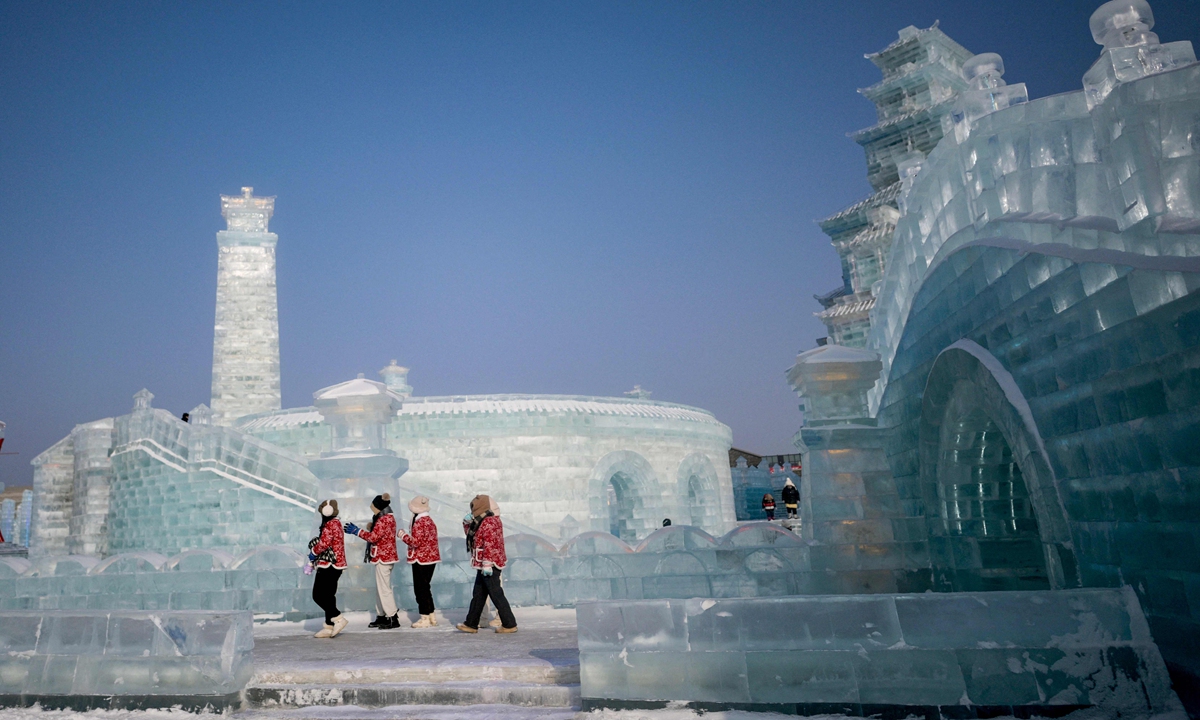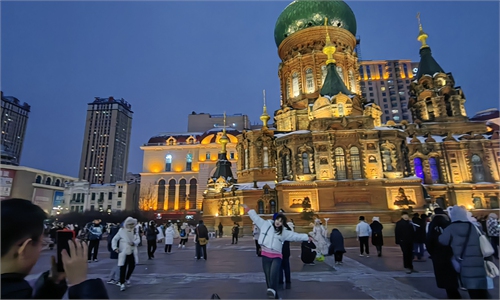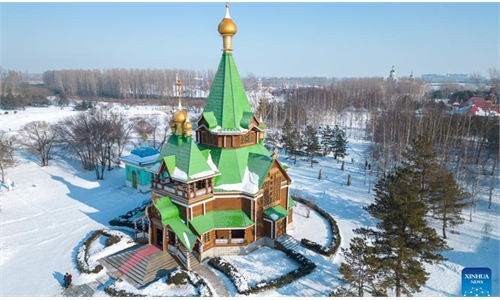Harbin, ice and snow city made famous overnight, finds new opportunities in attracting foreign investors

Tourists visit the Harbin Ice and Snow World in Harbin, Northeast China's Heilongjiang Province, on January 5, 2024. Photo: VCG
Harbin, capital of Northeast China's Heilongjiang Province and a city of ice and snow, gained instant fame in China as it made hospitality a hallmark of its tourism services. City officials have been busy receiving foreign delegations in recent days. Stakeholders and experts said that the priceless popularity the city garnered could serve as a calling card in its efforts to attract foreign investors and become a gateway of opening-up to the north.
A number of official and semi-official foreign delegations paid visits to the city in recent days, the Global Times learned.
French Tourism Minister Olivia Grégoire visited the city on Friday and inaugurated the China-France Year of Culture and Tourism, according to a post on the WeChat account of the French Embassy to China on Monday.
The China-France Year of Culture and Tourism started with "ardent passion at Harbin Ice and Snow World," read a post.
Chen Zhigang, director-general of the Russian-Chinese Business Park in St. Petersburg, led a delegation to visit Harbin's municipal commerce bureau recently. Chen's delegation exchanged views on the outlook for cooperation between the two cities.
On January 5, Harbin Mayor Zhang Qixiang told a visiting delegation headed by the mayor of Chiang Mai, Thailand Asanee Buranupakorn that he hoped the two sides could expand the scope of economic and trade cooperation as the city is building itself into an upper land of opening-up to the north, according to a post on the Harbin municipal government's website.
In an interview with the Global Times, Chen said he signed two deals this time, with one arranging for Russian companies to procure household appliances from Harbin and the other inviting Harbin- and Heilongjiang-based companies to attend the Power & Electrical Engineering Exhibition in St. Petersburg in April.
"It can be said that we unexpectedly ran into Harbin's sudden fame and this has profound implications," Chen said. "Tourism is never only about tourism but is rather a systemic barometer of a place's comprehensive capability."
Multiple signs have demonstrated a strong momentum of the revitalization of Northeast China - a national strategy that has been in place for years - is picking up pace of late, Chen said.
"The celebrity status enjoyed by the city across China has served as a huge confidence booster for the local populace, and I feel that this northeastern province is back on its feet again, regaining a sense of pride after years of relative underdevelopment," Chen said. "This matters."
Experts noted that Harbin's newfound fame will be a positive factor in the city's efforts to woo foreign investors.
In May 2022, Heilongjiang Province rolled out a three-year action plan for 2022-24, aiming to attract 1 trillion yuan ($141 billion) of outside investment, including from leading global companies.
China's top policymakers have made stabilizing foreign capital inflows a top priority for economic work in 2024 and pledged opening-up measures in several areas, including further expanding market access and creating a world-class business environment.
Song Kui, president of the Contemporary China-Russia Regional Economy Research Institute, told the Global Times on Tuesday that Russian officials, businesspeople and tourists are visiting the city, now that it is under an international spotlight.
"Hot people-to-people exchanges will surely warm up trade and economic cooperation, as an inflow of people brings information and opportunities," Song said.
The province is tapping the advantage brought by the setting up of free trade pilot zones and mulling coordinated development with the Russian Far East, Song said.
Industrial cooperation, in which some Russian energy and grain companies could invest in China, will become a new hotspot in bilateral economic cooperation, according to Song.




